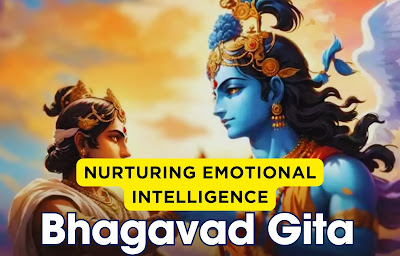Similarities in Bhagavad Gita vs Bible vs Quran
Bhagavad Gita, Bible, and Quran belong to different religious traditions, they share several common teachings despite their distinct cultural and historical contexts.
Here's a comparative overview of some shared teachings:1. Concept of God:
Bhagavad Gita: Portrays various aspects of God, including the formless, the personal, and the omnipresent.
Bible: Emphasizes the monotheistic belief in one God, often described as compassionate and just.
Quran: Advocates the absolute monotheism (Tawhid), emphasizing God's unity, uniqueness, and mercy.
2. Morality and Ethics:
Bhagavad Gita: Stresses the importance of righteous action (Dharma) and selflessness in performing one's duties.
Bible: Teaches moral principles such as love, compassion, forgiveness, and justice.
Quran: Encourages moral conduct, charity (Zakat), honesty, and kindness towards others.
3. Human Purpose and Salvation:
Bhagavad Gita: Focuses on attaining self-realization (Moksha) through spiritual knowledge and the path of devotion.
Bible: Teaches salvation through faith, repentance, and a personal relationship with God, emphasizing eternal life.
Quran: Stresses submission to God (Islam) and obedience to His will for attaining paradise (Jannah).
4. Compassion and Service:
Bhagavad Gita: Emphasizes selfless service (Karma Yoga) and compassion for all beings.
Bible: Teaches the importance of loving one's neighbor, helping the poor, and caring for the marginalized.
Quran: Encourages acts of charity, assisting the needy, and treating others with kindness and fairness.
5. Inner Peace and Tranquility:
Bhagavad Gita: Teaches inner peace through self-discipline, meditation, and detachment from desires.
Bible: Promotes peace, trusting in God, and finding rest through faith in challenging times.
Quran: Encourages prayers, patience, and reliance on God for inner peace and contentment.
Conclusion:
While these texts differ in their theological concepts and historical contexts, they converge on several moral and ethical teachings, emphasizing virtues like compassion, love, justice, and devotion to a higher power. These shared values underscore the universal human quest for spirituality, ethical living, and the pursuit of inner peace and salvation.




Comments
Post a Comment